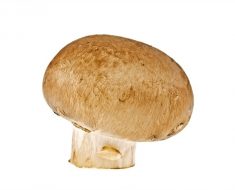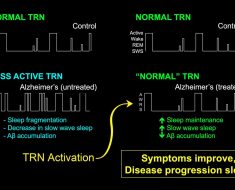During growing seasons, pollen spreads through the air and fertilizes plants. When people with allergies breathe in this pollen, their body identifies it as a threat, which can trigger an allergic reaction.
In this article, learn about the symptoms of a pollen allergy, such as sneezing, itching, and watery eyes. We also look at some treatment options and home remedies that might bring relief.
Symptoms

Pollen allergy causes a person to experience several of the following symptoms:
- itchy or watery eyes
- itchy throat
- a runny nose
- sneezing
- a stuffy nose
- wheezing
Some people with asthma may also find a pollen allergy worsens their existing asthma symptoms, which can include wheezing and coughing.
When a person breathes in pollen, the pollen releases water-soluble proteins on the respiratory lining. These proteins are usually harmless, but sometimes a person’s body mistakenly recognizes them as harmful substances.
The body reacts to this perceived threat by making and releasing substances known as IgE antibodies.
These IgE antibodies attach to mast cells in the body, which release histamine. Histamine is the main substance responsible for pollen allergy symptoms.

Medical treatments, home remedies, and changes in some lifestyle habits can help ease symptoms of pollen allergy.
Treatments for pollen allergies include:
- Over-the-counter antihistamine medications, such as cetirizine (Zyrtec) or loratadine (Claritin). A person should start taking these medications a few weeks before allergy season begins.
- Immunotherapy tablets or shots to desensitize the body to pollen.
- Nasal sprays designed to relieve the itching and congestion. These include decongestants, which are only a short-term solution for swelling.
- Nasal corticosteroid sprays are effective in reducing inflammation and its associated symptoms in the nasal passages.
Most treatments only help manage allergy symptoms, but cannot cure them. Immunotherapy may be helpful for long-term allergy management but can take several years to complete.

Home remedies
There is a variety of home remedies and preventative steps that a person can take to reduce their allergy symptoms. Examples of these include:
- Keeping the windows closed when pollen counts are high.
- Using special HEPA filters in central air conditioning vents might help filter out pollen from the air system.
- Changing clothes each time after coming inside from the outdoors to limit pollen exposure.
- Taking a bath or shower each night before going to bed to rid the skin and hair of pollen buildup.
- Washing bedding in hot, soapy water at least once per week.
Many home remedies for allergies are available, but research has not yet proven that they are effective.
One example of a home remedy is eating local or raw honey. Some natural food experts maintain that eating local honey can help reduce pollen allergies in the same way that allergy shots do.
However, the American College of Allergy, Asthma, & Immunology have not found any research to confirm that consuming local honey will help reduce allergy symptoms.
Other home remedies that may help fight a pollen allergy include:
- Drinking herbal teas made with gingko, milk thistle, red clover, stinging nettles, or yarrow. These herbal preparations may have anti-inflammatory effects, which might reduce allergy symptoms.
- Using nasal saline irrigation tools, such as Neti pots, to flush the nasal passages, using warm water and salt.
- Taking herbal capsules, such as Allium cepa or Euphrasia.
The above home remedies are not scientifically proven to be effective, but anecdotal evidence suggests they may help some people.
Takeaway
A pollen allergy is a common but irritating condition. A person may be allergic to certain types of pollen or multiple pollens.
An allergist can help them determine which pollens affect them most.
Medication and at-home treatments are available to reduce symptoms until the pollen season subsides.
The remedies listed in this article are available for purchase online.
- Shop for Zyrtec.
- Shop for Claritin.
- Shop for nasal sprays.
- Shop for HEPA filters.
- Shop for herbal teas.
- Shop for neti pots.
- Shop for Allium cepa.
- Shop for Euphrasia.
We picked linked items based on the quality of products, and list the pros and cons of each to help you determine which will work best for you. We partner with some of the companies that sell these products, which means Healthline UK and our partners may receive a portion of revenues if you make a purchase using a link(s) above.
Source: Read Full Article





